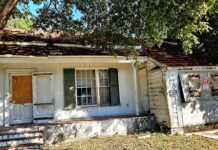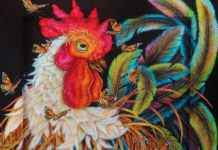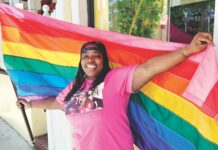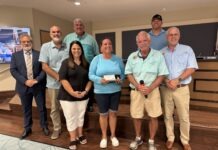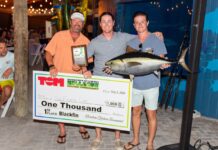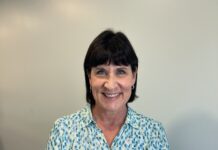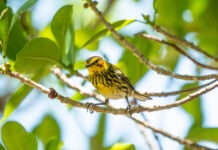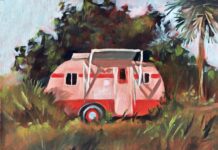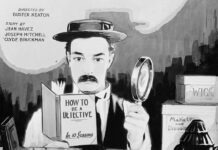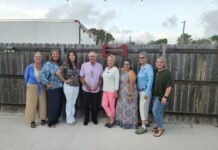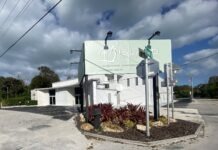By Kathleen Kaska
Lifelong Tavernier resident, Alice Allen, passed away earlier this year at the age of 84. A gathering to remember her will be held on Nov. 18 at Old Settlers Park, MM 92.5, oceanside, starting with light refreshments being offered at 3:30 p.m. The public is welcome.
Allen will be remembered for her eloquent public speaking, dry wit and long-range visions. She taught music for 52 years and served tirelessly as a community leader, preserving local history and the environment.
She was born in Amityville, New York in 1938 to Robert Porter Allen, a famous ornithologist, and Evelyn Sedgwick Allen, a 1927 graduate in piano of what is now the Juilliard School. When Allen was 18 months old, the family relocated to Tavernier where her father was sent by the Audubon Society to study the disappearing roseate spoonbill.
During World War II, Allen’s father volunteered for the Army and the family relocated to Sausalito, California. After her father’s discharge in 1946, they returned to Tavernier. Over the next two years the family spent some time near the Aransas National Wildlife Refuge in Texas and Flotten Lake, Saskatchewan, Canada, while her father researched whooping cranes for Audubon.
In 1948, the Allens returned to Tavernier for good. Alice, then 9, was glad to be home. She often reflected that one of the best parts of being a “Keys kid” was not having to wear shoes – even in school.
She wasted no time getting involved with her community. At age 11, she became an assistant sergeant-at-arms for the Keys Memorial Unit 145, an American Legion auxiliary. By 12, her talents landed her a place at the Miami Daily News as a youth roundup junior editor. She wrote regularly about Coral Shores High School and Tavernier community events. At 14, she showed potential as an investigative reporter. In a piece on teenage reckless driving, her question to a Florida Highway Patrol Officer uncovered that adults were, in fact, the worst drivers.

Allen excelled in school. In 1954, at just 16, she graduated a year early from Coral Shores High School as salutatorian. In the fall of the same year, she was admitted to the University of Florida where eventually, in 1968, she received a bachelor of arts degree. In the late 1950s she lived in Miami and graduated from business school. During the 1950s and 1960s, in between studies, her curiosity about the rest of the world took her to live in New York and London.
She had studied piano with her mother since age 10 and later continued elective music studies at the University of Florida and at a conservatory in Miami. She never intended to become either a musician or a teacher. However, in 1970 while finishing her master’s research in cultural anthropology, a family tragedy required her to take over her mother’s Tavernier piano studio literally overnight. Finding the teaching delightful, she never looked back.
Former Judge Reagan Ptomey Jr.’s sons took piano lessons from her.
“Miss Allen had the patience for the job, especially with my youngest son, who was not interested. He wanted to be a drummer. He never practiced, and after 18 months with very little progress, I sadly told Miss Allen I was taking him out of class. She teared up, and I thought she was sad over losing him as a student. Instead, she laughed and said she was shedding tears of joy because she no longer had to teach him. We both had a good laugh. Miss Allen had a witty sense of humor.”
The Allen Music Studio presented its 70th annual spring recital in 2018. When COVID hit, Allen, at age 82, learned how to conduct Zoom lessons. She continued to teach up until a few months before she passed away.
She made deep connections with many of her students. Ryan Raines, a student who became a professional musician, started lessons at a young age.
“Ms. Allen always made me feel like I had a profound gift to share with the world — her belief in me as a musician and human being felt unshakable. She was my mentor, both musically and personally, and a dear friend.”
Patricia Watts studied with Allen from 2012 up until she passed away.
“I came for lessons as a nervous adult who had been away from the piano for 30 years. In an early lesson I played a piece, and she was silent for a long time,” she said. “I expressed my concern about the pause, and she said matter-of-factly, ‘I’m contemplating the depths of your deficits.’ I think I winced. She brushed that aside and said, ‘It’s mostly about rust. I’m figuring out the best way to get the rust off your fingers and what you used to know.’ She was tough, practical and inventive in showing me how to take my playing where it could go.”
Watts described lessons as an adventure, not just in piano playing, but hearing her amazing family history. “I felt adopted by her and miss her every day.”
Along with teaching music, Allen was at the helm of numerous community projects to preserve the history and quality of life in Tavernier. In 1994 the state ordered the purchase of park lands to meet the requirements of the county land use plan. Environmental activist Dagny Johnson called Allen, urging her to secure a 3.2-acre piece of oceanfront property that was for sale in the heart of Tavernier. As Dagny would say, “Alice got it.”

Under Allen’s leadership, Friends of Old Settlers Park (FOOSP) formed. A valuable piece of history was preserved with the property’s purchase on Oct. 21, 1994, and for 10 years, before opening for public use, the vision to develop a park that would retain its natural shoreline and native vegetation while paying tribute to the original settling Tavernier families energized many community volunteers. Allen’s focus never wavered.
In the late 1990s, when the idea of incorporating cities swept the Florida Keys, Tavernier faced huge changes and loss of identity. The community needed a voice and with the help from friend Sylvia Murphy, who later became a county commissioner, the Tavernier Community Association (TCA) was established. Through TCA and Allen’s leadership, the community mobilized again. John Hammerstrom, who followed Allen as president of TCA, said, “Alice was a tenacious advocate who marshaled and mentored disciples like me to help her preserve Tavernier as a distinct historic community in the Florida Keys. Her compass never faltered.”
Allen’s historical knowledge proved invaluable to Monroe County. She was a trustee on the board of directors of the Historic Florida Keys Foundation from 1997-2007 and then became a director emeritus. At the turn of the millennium, with Allen in her 60s, she became involved in another first. Diane Silvia, preservationist for Monroe County Historic Preservation Commission, remembers Allen as a strong-willed woman with an underlying love for her home community of Tavernier.
“Alice was my mentor and confidant in my role as historic preservation planner for the county. She was instrumental in forming Monroe County’s Historic Preservation Commission in 2000 and served as commission chair for nearly 21 years,” Silvia said. “She also helped formulate the Tavernier Historic District, aimed at preserving the historic character of her community. She served as a primary source of Upper Keys history for researchers doing surveys of historic structures and archaeological sites.”
Allen willingly served her community without financial compensation. She knew her father’s work with Audubon was important, often groundbreaking. During his career, their Tavernier home was a busy place as he wrote books and manuscripts as colleagues visited. Forty years after he passed away, I approached Allen and earned her trust to tell her father’s story. In 2012, “The Man Who Saved the Whooping Crane” was released. The book’s dedication is to “Alice without whose assistance this book would not have been possible.”
Receiving Allen’s blessing to write her father’s biography was as important to me as writing the book. I could not have completed it without her support and willingness to answer my myriad questions. We debated a few issues and, in doing so, enlightened one another’s perspectives. On more than one occasion, Allen prefaced her anecdotes with, “This is off the record,” which often resulted in us having a few laughs.
We discovered that we had a lot in common, and we continued corresponding after the book was published. I’ve saved all her letters, emails and photos. I especially love one of her dog, Harry, looking out the window. Allen was a true animal lover, and her pets often made their way into our conversations. I miss Allen and will always cherish her friendship.
Allen’s years of selfless dedication helped Tavernier retain its historical roots and open space, so it’s fitting that a gathering to remember her will be held at Old Settlers Park on Nov. 18 at 3:30 p.m. “Alice made many personal sacrifices, that’s what being a community leader is,” said Jill Patterson, who worked closely on community issues with Allen. “She was proactive and didn’t wait for outside efforts to change the Tavernier Community and she never ‘sold out.’”
Patterson added, “The pressures of development on our small Keys communities are never-ending. Alice knew that. Our conversations usually ended with her saying one simple word, ‘Onward!’”
